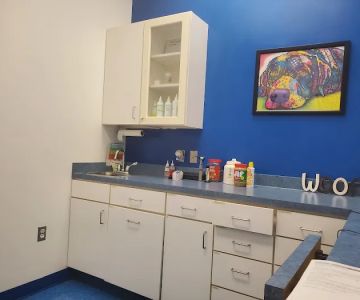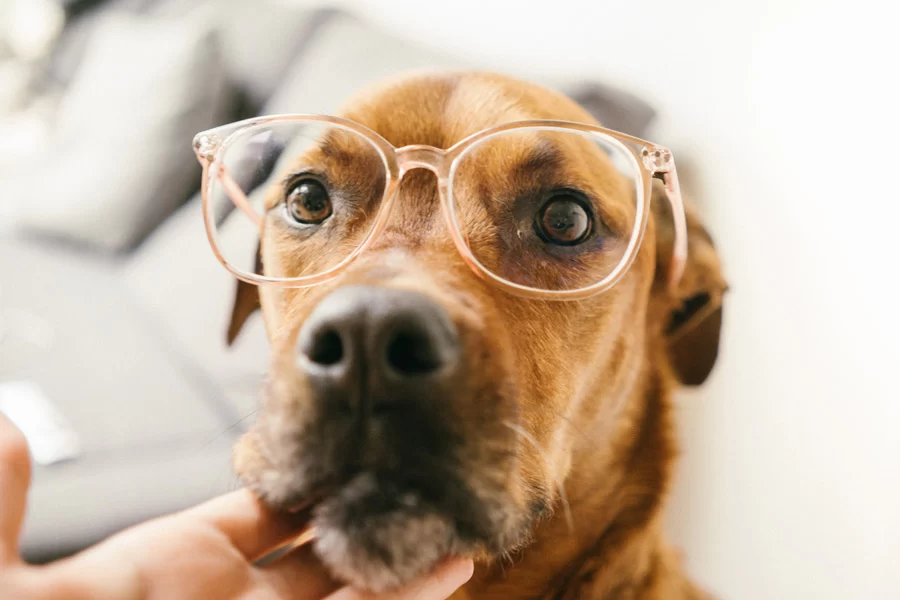Why Eye Care is Crucial for Your Pet
As a pet owner, I always make sure that I take good care of every part of my pets' health. But one aspect that often gets overlooked is eye care. Just like us, pets rely heavily on their eyes to interact with the world. Yet, many pet owners don’t realize how important it is to regularly check their pets’ eyes for any signs of discomfort or issues. Healthy eyes are essential for a pet’s overall well-being, and with proper care, you can prevent most common eye problems and ensure that your furry friend can enjoy clear vision throughout their life.
Common Eye Issues in Pets
There are a variety of eye conditions that can affect pets. Some of these issues may be minor, but others can lead to more serious problems if left untreated. In my own experience with my dog Max, I learned firsthand how important it is to catch eye problems early. Some of the most common eye conditions in pets include:
- Cataracts: This is a condition where the lens of the eye becomes cloudy, leading to a decrease in vision. Cataracts can be age-related or hereditary.
- Conjunctivitis: Often known as "pink eye," this condition involves inflammation of the conjunctiva and can cause redness, discharge, and irritation.
- Dry Eye (Keratoconjunctivitis Sicca): Dry eye is a condition where the eye does not produce enough tears, leading to irritation and discomfort.
- Glaucoma: Glaucoma is a condition that causes increased pressure within the eye, which can damage the optic nerve and lead to blindness if left untreated.
- Corneal Ulcers: These are painful open sores on the surface of the eye, often caused by trauma, infection, or underlying conditions.
Best Practices for Pet Eye Care
1. Regularly Check Your Pet’s Eyes
The first step in caring for your pet’s eyes is to make checking them a regular habit. I make it a point to gently examine Max's eyes once a week, especially since he's prone to eye infections. I look for any signs of redness, cloudiness, discharge, or any abnormal behavior such as squinting or pawing at the eyes. If you notice any of these signs, it’s important to contact your vet right away.

12733 Braemar Village Pz, Bristow, VA 20136, USA
See Details2. Keep Their Eyes Clean
Just like humans, pets can accumulate debris or dirt around their eyes. This can lead to irritation or even infections if left unchecked. Regularly wiping around your pet’s eyes with a soft, damp cloth can help keep their eyes clean and free from dirt or discharge. I found that gently wiping around Max’s eyes with a warm, wet cotton ball after walks helped prevent buildup, especially in dusty environments.
3. Keep Your Pet's Living Environment Clean
The cleanliness of your pet’s living environment is critical for preventing eye infections. Dust, pollen, and other allergens can irritate your pet's eyes and make them more prone to conditions like conjunctivitis. Keeping your home clean and using air purifiers to reduce allergens can make a huge difference in maintaining your pet’s eye health. I noticed a big improvement in Max’s eye health once I started paying attention to the cleanliness of his environment, especially since he spends a lot of time indoors.
4. Protect Your Pet's Eyes from Injury
Pets, especially those that love to run and play outdoors, are at risk of eye injuries. Whether it’s a thorn in the eye or a traumatic injury from playing rough, eye trauma is a real concern. I always make sure to keep Max’s playtime supervised, and I avoid letting him run through tall grass where he could injure his eyes. If your pet enjoys outdoor adventures, consider protective gear, such as goggles, to safeguard their eyes from dust and debris.
5. Ensure Proper Nutrition for Healthy Eyes
Good nutrition plays a huge role in your pet’s overall health, including their eyes. A balanced diet rich in vitamins A and C, as well as omega-3 fatty acids, can help support eye health. I’ve found that feeding Max high-quality food with antioxidants and vitamins designed for eye health has made a noticeable difference. If you’re unsure about the best food for your pet’s eye health, it’s always a good idea to consult with your veterinarian.
6. Be Cautious with Medications and Chemicals
Certain medications and chemicals can be harmful to your pet's eyes, so it’s important to be cautious when applying anything near their eyes. Always read the labels of pet products and medications carefully. I learned this lesson the hard way when Max had a mild eye irritation after I applied a flea treatment that wasn’t meant for the eye area. Now, I make sure to use only vet-approved products that are safe for his eyes.
7. Take Your Pet for Regular Vet Check-ups
Regular veterinary check-ups are essential for maintaining your pet’s eye health. During these visits, your vet will check for any signs of eye problems that may not be visible to you. For example, Max once developed a mild case of dry eye that my vet was able to spot early during a routine check-up. Early detection can make a huge difference in preventing more serious eye conditions from developing later on.
Real-Life Story: How I Handled My Dog's Eye Health
When I first adopted Max, I wasn’t aware of the importance of eye care, and it wasn’t until he started squinting one day that I realized something was wrong. His left eye appeared red, and there was a bit of discharge. I took him to the vet, where I learned that he had a mild case of conjunctivitis, likely triggered by dust and allergens in our home. After a few days of treatment, Max’s eyes improved, and it taught me just how crucial it is to stay vigilant about eye care. Since then, I’ve made eye health a priority, and I’ve never had any serious issues again.
Conclusion
As a pet owner, one of the most important things you can do for your pet is to care for their eyes. Regular eye exams, a clean environment, a proper diet, and protecting their eyes from injury are all key aspects of maintaining good eye health. By following these best practices, you can help prevent common eye problems and ensure that your pet enjoys a lifetime of healthy vision. Don’t forget, if you ever notice any changes in your pet’s eyes, consult with your veterinarian immediately to get the best advice and care for your furry friend.











